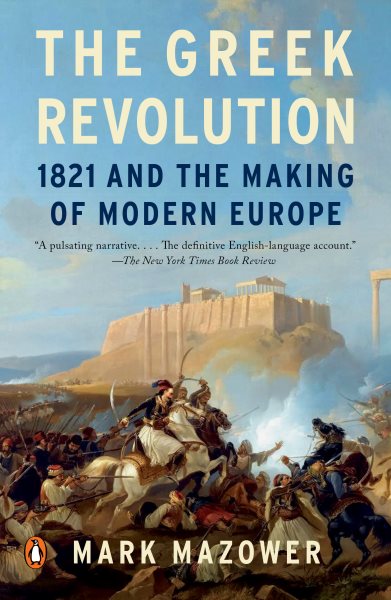| Elgin marbles 12:03 - Jan 5 with 4633 views | britferry |
Should they be returned to Greece?
Sadly, I think they should be now. Elgin was allegedly given permission to take them, which I think saved them but Greece is a different place now and its time they got returned to their rightful home.
Elgin Marbles: What are they and how did they end up in the British Museum?
Seen as symbols of freedom in Greece, the Parthenon Marbles were controversially removed from the country by a British diplomat in a move which ignited a debate which has lasted for more than two centuries - and which could now be about to take another significant twist.
The Elgin Marbles could soon return to Greece - more than 200 years after they were shipped out of the country to Britain.
Greece has made repeated requests for the sculptures to be returned after they were controversially removed from one of the world's most historic monuments.
Now, the British Museum has drawn up an agreement with Athens to loan back the Elgin Marbles in a long-term "cultural exchange", according to the Daily Telegraph.
The museum has said it continues to have "constructive discussions" over their possible return.
What are the Elgin Marbles?
They are 17 sculptures which are 2,500 years old.
The marbles were part of a frieze that decorated the ancient Parthenon temple at the Acropolis in Athens, Greece.
The marbles made up around half of the 160-metre frieze at the Parthenon, which is regarded as one of the world's greatest cultural monuments.
The sculptures are seen as symbols of freedom in Greece, where they are known as the Parthenon Marbles.
How did they end up in Britain?
British diplomat Lord Elgin removed the sculptures from the imposing Parthenon temple in the early 19th century.
At the time, he was the ambassador to the Ottoman Empire, which then ruled Greece.
Beginning in 1801, Lord Elgin is said to have overseen the removal and shipping to the UK of the marbles in 170 crates.
He is said to have claimed he had been given permission by the Ottoman Empire for the transfer of the marbles - but despite the vast documentation from that period, nothing has been found to support his actions.
In the UK, Lord Elgin received support and criticism.
He sold them to the UK government in 1816 before the marbles were passed into the trusteeship of the British Museum.
When did the dispute begin - and how did it unfold?
The controversy can be traced back to when the marbles first arrived in Britain due to the criticism of their removal.
Then in 1832, Greece gained its independence from the Ottoman Empire before it set about trying to recover the sculptures and other artworks which had been taken from the country.
In the early 1980s, actress and then Greek minister for culture, Melina Mercouri, reignited the campaign when she made it her mission to secure the return of the marbles.
In 1983, she met the director of the British Museum, Dr David Wilson, in London, demanding the sculptures be returned.
She continued to put pressure on the museum and the British government up until her death in 1994.
Despite other requests and high-profile media coverage, no deal was reached in the years that followed.
Then in 2009, Greece stepped up its campaign for the return of the marbles after opening a new museum at the foot of the Acropolis hill that it hopes will one day house them.
In 2014, human rights barrister Amal Clooney called on Britain to start talks with Greece on the return of the Elgin Marbles.
"This is an injustice that has persisted for too long, and in a world of intractable conflicts," said the lawyer, who is the wife of Hollywood star George Clooney.
In 2015, Greece ruled out taking any legal action against the UK over the Elgin Marbles.
In May 2022, the so-called Fagan fragment - a piece showing the foot of the seated ancient Greek goddess Artemis, was permanently returned to Athens from a museum in Italy.
It had originally been a part of the fifth century BC temple's eastern frieze. |  |
| |  |
| Elgin marbles on 16:30 - Jan 9 with 976 views | Lohengrin |
| Elgin marbles on 20:46 - Jan 5 by Sirjohnalot |
Listen to the podcast, apparently we accept we just stole them. |
They were most certainly not stolen, John. Elgin paid £75,000 out of his own pocket, a fantastic sum at the time, many millions in today’s terms, to bring the Parthenon marbles to Britain. Now you could make the argument that they weren’t the Ottoman’s to sell, you could easily make a moral case for that, but the reality is that Athens in Elgin’s time had been under Ottoman rule for about four hundred years and there can’t have been too much faith that picture would alter any time soon so Elgin was very much in negotiations with what would have been the relevant authority. Elgin didn’t simply load up two hundred or so crates and ‘leg it’ he had to dig deep.
I went to see Stephen Fry speak last Summer in his role as patron/spokesman for The Parthenon Project which lobbies for the return to Athens of the collection, a move I would fully support. Fry, however, was happy to point out that if not for Elgin it is very unlikely they would exist today. Had they somehow survived Ottoman malice during the War for Independence and Iconoclastic Communist vandalism during the Civil War then they would surely have succumbed to the obscene levels of air pollution in Athens during the ‘70s and ‘80s.
The most obvious reason for The British Museum to have retained them was the fact there was simply nowhere in Athens to house them. That held good down the decades of debate until the construction of the Acropolis Museum. That’s the game-changer. That’s now where they belong. |  |
| An idea isn't responsible for those who believe in it. |
|  |
| Elgin marbles on 16:40 - Jan 9 with 953 views | Sirjohnalot |
| Elgin marbles on 16:30 - Jan 9 by Lohengrin |
They were most certainly not stolen, John. Elgin paid £75,000 out of his own pocket, a fantastic sum at the time, many millions in today’s terms, to bring the Parthenon marbles to Britain. Now you could make the argument that they weren’t the Ottoman’s to sell, you could easily make a moral case for that, but the reality is that Athens in Elgin’s time had been under Ottoman rule for about four hundred years and there can’t have been too much faith that picture would alter any time soon so Elgin was very much in negotiations with what would have been the relevant authority. Elgin didn’t simply load up two hundred or so crates and ‘leg it’ he had to dig deep.
I went to see Stephen Fry speak last Summer in his role as patron/spokesman for The Parthenon Project which lobbies for the return to Athens of the collection, a move I would fully support. Fry, however, was happy to point out that if not for Elgin it is very unlikely they would exist today. Had they somehow survived Ottoman malice during the War for Independence and Iconoclastic Communist vandalism during the Civil War then they would surely have succumbed to the obscene levels of air pollution in Athens during the ‘70s and ‘80s.
The most obvious reason for The British Museum to have retained them was the fact there was simply nowhere in Athens to house them. That held good down the decades of debate until the construction of the Acropolis Museum. That’s the game-changer. That’s now where they belong. |
I don't know anything about them but have a listen to the podcast I referenced somewhere above |  | |  |
| Elgin marbles on 17:11 - Jan 9 with 938 views | Lohengrin |
| Elgin marbles on 16:40 - Jan 9 by Sirjohnalot |
I don't know anything about them but have a listen to the podcast I referenced somewhere above |
I had a quick listen, John, and I’m a bit baffled as to why Maitlis was trying to shoe-horn race, as in racism, into the equation? Elgin wasn’t trying to ‘rob’ Greece he was attempting to honour and preserve an important physical manifestation of ancient Hellas. His actions speak of the obsession British and German scholars of the nineteenth century had with the Graeco-Roman world. What was it Carlyle said, they were ‘the twin founts of western civilisation, everything we are has that classical inheritance at root.’
It seems clear to me it was a labour of love not looting. |  |
| An idea isn't responsible for those who believe in it. |
|  |
| Elgin marbles on 17:18 - Jan 9 with 922 views | Sirjohnalot |
| Elgin marbles on 17:11 - Jan 9 by Lohengrin |
I had a quick listen, John, and I’m a bit baffled as to why Maitlis was trying to shoe-horn race, as in racism, into the equation? Elgin wasn’t trying to ‘rob’ Greece he was attempting to honour and preserve an important physical manifestation of ancient Hellas. His actions speak of the obsession British and German scholars of the nineteenth century had with the Graeco-Roman world. What was it Carlyle said, they were ‘the twin founts of western civilisation, everything we are has that classical inheritance at root.’
It seems clear to me it was a labour of love not looting. |
You're a lot more knowledgeable about this than me, I'm only going off this one podcast, that's not the impression they gave, but like I said, I know nothing about it other than that |  | |  |
| Elgin marbles on 17:25 - Jan 9 with 915 views | Lohengrin |
| Elgin marbles on 17:18 - Jan 9 by Sirjohnalot |
You're a lot more knowledgeable about this than me, I'm only going off this one podcast, that's not the impression they gave, but like I said, I know nothing about it other than that |
I’m playing at home here. It’s something of a labour of love for me too. 😊 |  |
| An idea isn't responsible for those who believe in it. |
|  |
| Elgin marbles on 18:21 - Jan 9 with 895 views | SullutaCreturned |
| Elgin marbles on 17:25 - Jan 9 by Lohengrin |
I’m playing at home here. It’s something of a labour of love for me too. 😊 |
And lovely posts they were too, interesting and informative. I've learned something today if no one else has.
Thanks Loh. |  | |  |
| Elgin marbles on 18:35 - Jan 9 with 893 views | howenjack |
| Elgin marbles on 17:11 - Jan 9 by Lohengrin |
I had a quick listen, John, and I’m a bit baffled as to why Maitlis was trying to shoe-horn race, as in racism, into the equation? Elgin wasn’t trying to ‘rob’ Greece he was attempting to honour and preserve an important physical manifestation of ancient Hellas. His actions speak of the obsession British and German scholars of the nineteenth century had with the Graeco-Roman world. What was it Carlyle said, they were ‘the twin founts of western civilisation, everything we are has that classical inheritance at root.’
It seems clear to me it was a labour of love not looting. |
Not just Greece Lohengrin but you can add Egypt to the list a lot of the tombs in the valley of the Kings had been looted by the time Howard Carter and his sponsor Lord Caernarvon discovered Tutankhamen's in 1922. Iam convinced that the discoveries that the French expeditions under Champollion whose grave I have visited in Pere Lachaise cemetry and the British with Belzoni also helped in preserving rare artefacts for posterity . Talk of Greece in this era would be incomplete without mentioning Lord Byron who admired Greek civilisation
immensely and gave his life to the cause albeit dying of fever at Missolonghi after funding the Greek army in their struggle against the Turks . |  | |  |
| Elgin marbles on 19:46 - Jan 9 with 870 views | STID2017 |
Fascinating reading and great to learn about all this about the history behind the moving and discovery of these various ancient artifacts |  |
|  |
Login to get fewer ads
| Elgin marbles on 22:20 - Jan 9 with 836 views | Joesus_Of_Narbereth |
| Elgin marbles on 16:40 - Jan 9 by Sirjohnalot |
I don't know anything about them but have a listen to the podcast I referenced somewhere above |
I’m not ashamed to admit that until my early twenties I honestly believed the Elgin marbles were a set of brightly coloured glass balls. |  |
|  |
| Elgin marbles on 22:36 - Jan 9 with 832 views | STID2017 |
| Elgin marbles on 22:20 - Jan 9 by Joesus_Of_Narbereth |
I’m not ashamed to admit that until my early twenties I honestly believed the Elgin marbles were a set of brightly coloured glass balls. |
I never heard of them until this post.
Had I heard of them before, then I too would have thought of the glass version |  |
|  |
| Elgin marbles on 12:13 - Jan 12 with 742 views | Lohengrin |
| Elgin marbles on 18:35 - Jan 9 by howenjack |
Not just Greece Lohengrin but you can add Egypt to the list a lot of the tombs in the valley of the Kings had been looted by the time Howard Carter and his sponsor Lord Caernarvon discovered Tutankhamen's in 1922. Iam convinced that the discoveries that the French expeditions under Champollion whose grave I have visited in Pere Lachaise cemetry and the British with Belzoni also helped in preserving rare artefacts for posterity . Talk of Greece in this era would be incomplete without mentioning Lord Byron who admired Greek civilisation
immensely and gave his life to the cause albeit dying of fever at Missolonghi after funding the Greek army in their struggle against the Turks . |
Apologies for the delay in replying, I’ve only just seen this.
Yes, you’re no doubt correct: if not for the various Western European expeditions little or nothing would remain in the way of ancient artefacts and Egyptology as a scholarly discipline wouldn’t exist today.
I’ve got a quick book recommendation here for you as regards Byron and Greece, there’s a few knocking about up at Hay but Minta’s ‘On a voiceless shore’ would be my pick of the bunch.

As a general overview Mazower’s recent history of the Greek Revolution would be hard to beat. I had this as a birthday present a couple of years back and loved it. ðŸ‘
 |  |
| An idea isn't responsible for those who believe in it. |
|  |
| Elgin marbles on 19:14 - Jan 12 with 702 views | britferry |
| Elgin marbles on 18:35 - Jan 9 by howenjack |
Not just Greece Lohengrin but you can add Egypt to the list a lot of the tombs in the valley of the Kings had been looted by the time Howard Carter and his sponsor Lord Caernarvon discovered Tutankhamen's in 1922. Iam convinced that the discoveries that the French expeditions under Champollion whose grave I have visited in Pere Lachaise cemetry and the British with Belzoni also helped in preserving rare artefacts for posterity . Talk of Greece in this era would be incomplete without mentioning Lord Byron who admired Greek civilisation
immensely and gave his life to the cause albeit dying of fever at Missolonghi after funding the Greek army in their struggle against the Turks . |
I know the French army that invaded Egypt had experts with them when they found the Rosetta stone but I don't think Champollion was one of them. |  |
|  |
| Elgin marbles on 17:01 - Jan 13 with 658 views | howenjack |
| Elgin marbles on 19:14 - Jan 12 by britferry |
I know the French army that invaded Egypt had experts with them when they found the Rosetta stone but I don't think Champollion was one of them. |
I think Champollion came along a little later round the 1820 mark . He was the man who deciphered the Rosetta stone . He became interested in Egyptology at a young age and was a gifted linguist . |  | |  |
| Elgin marbles on 17:25 - Jan 13 with 650 views | howenjack |
| Elgin marbles on 12:13 - Jan 12 by Lohengrin |
Apologies for the delay in replying, I’ve only just seen this.
Yes, you’re no doubt correct: if not for the various Western European expeditions little or nothing would remain in the way of ancient artefacts and Egyptology as a scholarly discipline wouldn’t exist today.
I’ve got a quick book recommendation here for you as regards Byron and Greece, there’s a few knocking about up at Hay but Minta’s ‘On a voiceless shore’ would be my pick of the bunch.

As a general overview Mazower’s recent history of the Greek Revolution would be hard to beat. I had this as a birthday present a couple of years back and loved it. ðŸ‘
 |
Cheers I will look those up . Byron was certainly a fascinating character . He had borderline insanity on his father's side of the family . His daughter Ada ( The marriage only lasted a matter of weeks !) became a prominent mathematician and the world's first computer programmer albeit with a mechanical machine courtesy of Charles Babbage . Like her dad she died when 36.
Byron lived his life not at 100 mph but I would say nearer 1000 mph. He burnt the candle at both ends lived a pretty itinerant life surrounded by a menagerie of animals including peacocks horses cats dogs monkeys parrots .( he even kept a pet bear at one stage while at Cambridge University)..so moving house entailed a wagon train on the march ! Byron was an avid letter writer so a lot of his stuff has survived .
The grand tour early stuff is very interesting - he visits the court of Ali Pasha in the Greek Albanian border after travelling through Portugal and Spain . Ali Pasha's stronghold is open to the public as a museum and is featured on You tube.
Doris Langley Moore has written a couple of good books on him , there are other books which you can pick up on e bay his letters are well worth reading Eg" In My hot youth" a compilation of his early letters. Leslie Marchand is also a renowned author on the subject. |  | |  |
| |